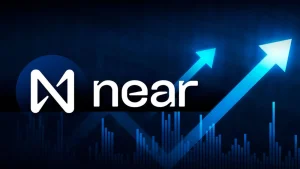With global demand for crypto ETF products growing, South Korean lawmakers are now pushing for a ban lift on the offering
South Korea’s top financial watchdog, the Financial Services Commission (FSC), is re-evaluating its stance on crypto Exchange-Traded Funds (ETFs) and institutional crypto accounts. This comes as legislators’ pressure mounts amid growing global interest in the digital assets class.
A Shift from Strict Opposition to Crypto ETF Products
The FSC’s new advisory body, the Cryptocurrency Committee, will explore whether the current ban on local crypto ETFs should remain in place. The decision could reshape South Korea’s approach to digital assets in traditional financial markets.
The FSC’s decision to review the ban signals a departure from its historically rigid stance on digital assets. Since 2018, South Korea has barred institutional investors from establishing crypto trading accounts on local exchanges.
The FSC’s reluctance to embrace digital assets is underscored by its decision earlier this year to maintain the ban on local crypto ETF listings.
At the time, the FSC cited concerns about financial market stability. However, mounting calls from the country’s legislators, including the ruling Democratic Party and opposition leaders, might force the agency to reconsider its position.
Rethinking South Korea’s Crypto Exchange Monopolies
In addition to reviewing the ban on crypto ETFs, FSC Chairman Kim Byung-hwan addressed concerns regarding South Korea’s digital asset exchanges. Upbit, the country’s largest exchange, has a virtual monopoly over the local market.
Out of South Korea’s five fully licensed exchanges, Upbit handles more than 61% of the country’s total crypto trade volume, surpassing $1.17 billion in daily transactions. This monopolistic structure has ignited concerns about market fairness and stability. Kim vowed to investigate the concentration of power in South Korean exchanges.
The financial relationship between Upbit and K-bank, one of the country’s leading digital banks, adds to the complexity of the crypto debate in the region.
According to Democratic Party lawmaker Lee Kang-il, deposits from Upbit users now account for 20% of K-bank’s total deposits. This financial dependence has raised alarms about the potential risks of a bank run should the partnership between the two firms falter.
Disclaimer: The information provided in this article is for informational purposes only. It does not constitute investment, financial, trading, or any other sort of advice. You should not treat any of BGECrypto’s content as such. BGEcrypto does not recommend that any cryptocurrency should be bought, sold, or held by you. Do your due diligence and consult your financial advisor before making any investment decisions.
























